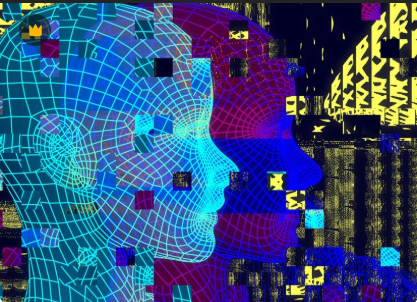In a groundbreaking legal move, Asian News International (ANI), one of India’s preeminent news agencies, has initiated a lawsuit against OpenAI, the renowned artificial intelligence entity. The implications of this case could potentially reshape the legal landscape concerning the usage of copyrighted news content in India, which holds the title of the world’s most populous nation. Filed in the Delhi High Court, the suit alleges that OpenAI illicitly leveraged ANI’s content to enhance its AI models. Furthermore, it accuses OpenAI of producing and disseminating inaccurate information under ANI’s guise, raising significant concerns over intellectual property rights in the digital age.
During a recent court session, Justice Amit Bansal served a formal summons to OpenAI after the company confirmed it had taken measures to prevent ChatGPT from accessing ANI’s online material. However, Justice Bansal expressed the need for a comprehensive exploration of the case, indicating that it presented considerable complexity. As a result, the court declined to issue an immediate injunction, with the next session scheduled for January, a time frame that will allow both parties adequate opportunity to prepare their arguments. Such deliberations signify the apparatus of legal scrutiny that the growing presence of AI in various industries will inevitably invite.

The lawsuit against OpenAI represents a broader wave of scrutiny faced by AI corporations regarding their treatment of copyrighted content. With several ongoing legal proceedings in different parts of the globe, including multiple lawsuits in the US, Canada, and Germany, the stakes are becoming increasingly apparent. OpenAI’s legal representative argued that copyright legislation does not encompass facts and insisted that users could opt out of data collection. However, this defense will be tested as the debate surrounding the intersection of AI technology and intellectual property rights evolves.
One of the key issues raised by ANI revolves around the concept of “hallucinations” in AI outputs. ANI has expressed particular alarm over the generation of fictitious interviews attributed to their agency, including a purported discussion with Rahul Gandhi, a prominent political figure in India. Such misinformation poses a significant threat not only to ANI’s reputation but also to the public’s perception of news authenticity. The agency has voiced apprehensions that the proliferation of false information could lead to social unrest, underscoring the vital need for accountability in AI-generated outputs.
The court’s decision to appoint an independent expert to assess the implications of copyright law in relation to AI models marks a crucial step in the deliberative process. This expert will provide insights into the nuances of how publicly available content can be utilized by AI systems. As technological advancements continuously reshape the media landscape, the intersection of AI and copyright law will demand nuanced understanding and delineation.
The ANI versus OpenAI case is more than just a legal dispute; it underscores a critical tension between innovation in artificial intelligence and the protection of intellectual property rights. As such lawsuits emerge, they will inevitably define the ethical and legal frameworks governing AI’s expansion into sectors like journalism, thereby shaping the future of media consumption and content creation.
- BYD’s Lingyuan: A New Era of Vehicle-Integrated Drone Technology - June 23, 2025
- The Rise of Xiaomi: An Overview of the Company’s Latest Innovations - June 23, 2025
- Ikea Enters the Thread Realm: The Timmerflotte Sensor - June 23, 2025


Leave a Reply